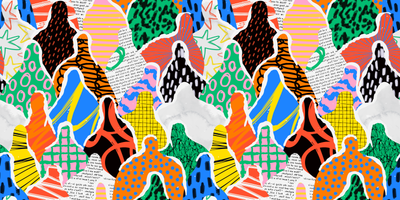Why universities should choose community over capital

Dear friends,
We’ve charted knowledge validation before. Or, I suppose, flitted around the edges of the supposed “validatory” power of the western hegemonic bloc. A bloc which is under threat, and yet remains largely outsourced under contemporary capitalist forms. Is the academy ready to be captured by the counter-hegemony, or are its tools, methods and self-important validations ready to topple to the disinformation racket of modern platform social media. Ok, we’ll scratch this itch a little further and ask some critical questions, because knowledge production remains an eternally under critiqued area of capitalism.
Universities and research institutes have long served as a big rubber stamp for some kinds of knowledge. Without getting into a material history of things like peer-review, we can see the influence of ”valid knowledge” on civil society for decades. The written form of record that these institutions produce inform a great many areas of bourgeois life – and, importantly, contribute to ongoing hegemonic reproduction. Take for instance an academic paper. For a paper to be written, we need researchers, researchers need jobs, institutions employ researchers, and in modern times, researchers must also seek funding from dried out pools. Each of these steps is political.
Universities, containing things to Australia for a moment, are beholden to government for funding and direction. This is achieved both through financing the institutions (parking the way HECS screws both universities and students for a moment) and through the provision of political acts (from actual acts, i.e., the University’s act) through to “strategic direction” through organs such as the chief scientist. Then there is the proliferation of academic hierarchy, most of whom are beholden to external interests, anything from political party membership, through to holding sponsored roles (i.e., xyz corp’s professorial fellow for killing the environment). Then, down layers of neoliberal ontogenesis, researchers are themselves beholden to political and corporate interests. Researchers, here, serve dual function: author/scientist, and reviewer/expert. The circlejerk of capitalism as epistemic master is complete.
Each layer of university existence is designed to prioritise stasis – not innovation, and the stasis above all else must ensure capitalism’s hegemony. Even if that means sabotaging the organs which support that hegemony in favour of new brutalisms. Bureaucratisation is the latest recycled fad in the onslaught of agency undermining processes designed to keep people from thinking their way out of capitalism. And it is at this point where a fundamental philosophical question emerges. This, as something I grapple with each day, is fundamental to theories of change:
Can the system which has created and maintained colonial capitalist hegemony be used to absolutely transform that system?
We might look to Lorde[1] on the masters tools at this juncture. From Marxist law[2], to intersectional feminisms[3]Lorde shook up notions of transformation using capitalism’s tools to change the world. While cynical inaction surfaces as a result of some of this thinking, decolonial and anti-capitalist thinkers continue to challenge the tools which reproduce our unequal system[4]. The essential tools, though, which emerge from the descendants of Lorde’s thinking, are in the epistemological re-shaping work which allow us to fundamentally challenge the ways our knowledge production happens, working with each other to find new ways of being and knowing[5]. A literal collective (that means all of us, intersectionally, not some of us qua capitalists) redefining of how we know and why that knowing matters.
This said, the general usefulness of universities and research institutes to capitalist hegemony seems to be in extreme doubt in our current political moment[6]. Look no further than the exile of researchers, academics and scientists from the US under Trump’s philistine and disinformation rulership[7]. But all over the world, universities and institutions which are responsible for anything from biomedical science through political philosophy are coming under fire and are contracting far faster than they are growing. Between the hegemonic apparatus embracing neofascism and the primary media form, platform social media, peddling ever more propaganda and disinformation with the goal of driving “engagement”, the process of knowledge validation is in tumult.
At this point, I believe, those of us in universities need to ask ourselves what we are striving for. Are we seeking endless reproduction of racist, sexist, ableist, and expropriative systems which feed the capitalist beast (and allow it to outgrow its need for us) all while cancerously destroying us and the rest of the ecology. Or do we look to what we could do to educate, work in relation with, and share our tools which have been too long kept guarded atop the ivory tower?
There is a fundamental need for us to shift the way we operate. Either we go: with the current hegemony we beg for scraps at capitalism’s table, reinforcing a broken and distorted system; or, we use the immense power still inside our institutions, the knowledge, processes and practices we know might be beneficial to people and communities to make strong relationships with people and communities. Not to “save”, and certainly not to “steal” from them, but to step alongside and work in partnership. The latter, fundamentally re-shaping the collective academic view of epistemology, is happening across intersectional work in a huge variety of arenas[8] – this is not “new” but rather, counter-hegemonic and thereby obstructed from mainstream view. This gives us an opportunity to reflect on what knowledge is, what thinking, knowing and doing could be, and how we want to relate to each other and to the planet – hope.
I started this thought with a pondering of what exactly it is universities offer students. Walking through Tarndanya’s Rundle Mall this morning, I further wondered, what can a university possibly offer an Aboriginal community? Further extraction? Further harm? Can we, in these current regimes, work toward truth telling, currently a distant glimmer, and build relationships with communities to recognise their aspirations, and centre those as ways of building a better future? I know for certain that the knowledge held in Aboriginal communities to date is far more complex and nuanced – and applicable with Country – than “western” knowledge. Yet universities concern ourselves with “educating” not recognising. We are worried about “validation” not acknowledgment. And we race to deficit narratives which undermine Community knowledge lest anyone else be labelled “knower”. Heaven forbid anyone else be as tastelessly pretentious as the bourgeois professor.
All the while, we waste literally millions on advertising campaigns to target future students, particularly the current lifeblood, international students. The marketing department wastes hours inventing empty slogans, targeted advertising copy, and finding ‘placement’ with no authentic groundwork to support their promises and claims. Decades of researchers barreling into communities and places with empty promises, delivering broken dreams, and producing decontextualised texts “about” rather than with have severed what could have been a powerful space for transformation of the Australian publics.
And this is but one, fundamental, space where university capitulation to corporate and hegemonic political interest fails civil society. Who cares, in 2025, if a “fact” is peer reviewed? Who agreed that these people are the ones who should be allowed to validate knowledge in the first place? Anything resembling truth, if we could even agree on what that is, is becoming increasingly scarce in our AI-fuelled pseudoscientific platform capitalism reality. Media literacy is at an all time low, and even the fundamental skill of searching the internet is being replaced by >70% inaccurate ecology destroyers[9].
It feels like now or never to pivot the purpose of education towards something which engages communities. Lest hallucinatory fact guessing machines replace the utterly human act of educating and we stumble into darkness. (mind you, it always feels now or never, so don’t panic, let’s strategise and contribute to the already growing counter-hegemony instead).
With care,
Aidan
https://en.wikipedia.org/wiki/Audre_Lorde#Sister_Outsider also https://www.poetryfoundation.org/poets/audre-lorde ↩︎
https://papers.ssrn.com/sol3/papers.cfm?abstract_id=4544488 ↩︎
https://www.google.com.au/books/edition/Beyond_the_Master_s_Tools/72fuDwAAQBAJ?hl=en https://doi.org/10.1080/09540253.2021.1963420 ↩︎
Or actually for decades… https://doi.org/10.1007/s40309-014-0041-x ↩︎
https://www.theguardian.com/us-news/ng-interactive/2025/jun/15/academics-science-trump-university-crackdown ↩︎
https://www.theregister.com/2025/06/29/ai_agents_fail_a_lot/ ↩︎
No spam, no sharing to third party. Only you and me.






Member discussion